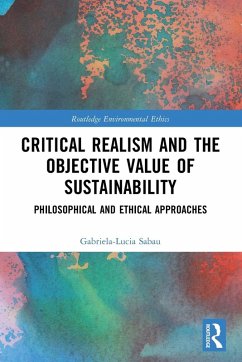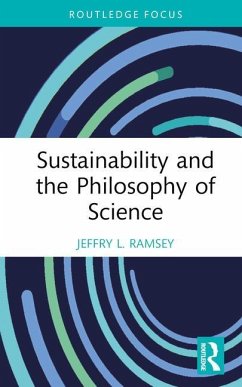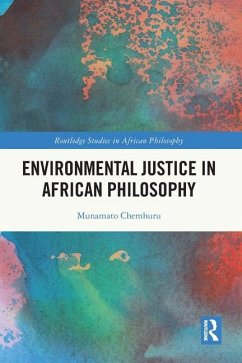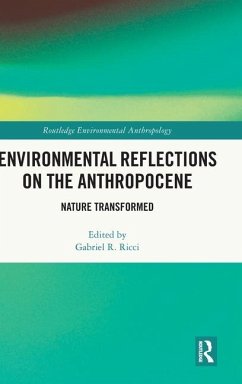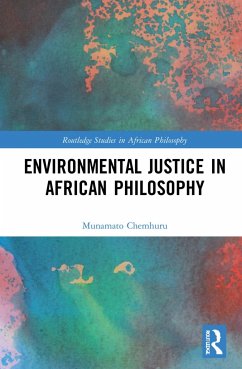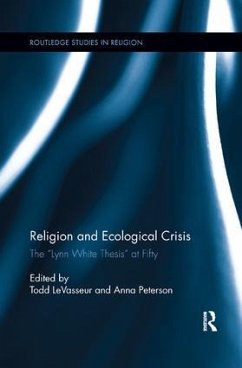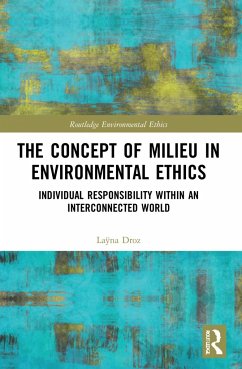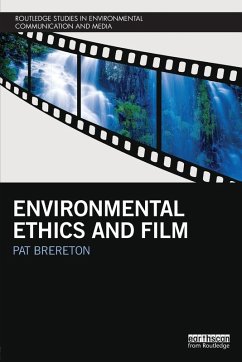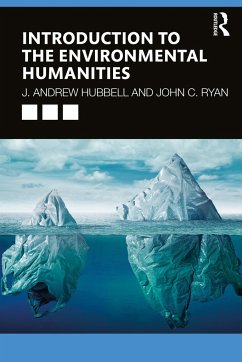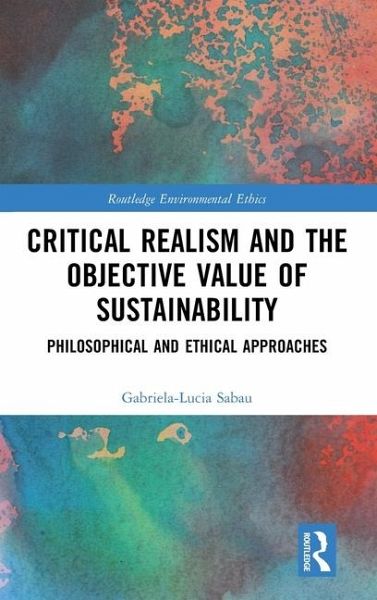
Critical Realism and the Objective Value of Sustainability
Philosophical and Ethical Approaches
Versandkostenfrei!
Versandfertig in 6-10 Tagen
154,99 €
inkl. MwSt.
Weitere Ausgaben:

PAYBACK Punkte
77 °P sammeln!
Critical Realism and the Objective Value of Sustainability contributes to the growing discussion surrounding the concept of sustainability, using a critical realist approach within a transdisciplinary theoretical framework to examine how sustainability objectively occurs in the natural world and in society.The book develops an ethical theory of sustainability as an objective value, rooted not in humans' subjective preferences but in the holistic web of relationships, interdependencies, and obligations existing among living things on Earth, a web believed to have maintained life on Earth over t...
Critical Realism and the Objective Value of Sustainability contributes to the growing discussion surrounding the concept of sustainability, using a critical realist approach within a transdisciplinary theoretical framework to examine how sustainability objectively occurs in the natural world and in society.
The book develops an ethical theory of sustainability as an objective value, rooted not in humans' subjective preferences but in the holistic web of relationships, interdependencies, and obligations existing among living things on Earth, a web believed to have maintained life on Earth over the last 3.7 billion years. It proposes three pillars of sustainability ethics: contentment for the human existence given to us; justice (beyond distributive justice); and meaningful freedom (within ecological and moral limits). Using abductive reasoning, the book infers that there is an out-of-this-world Sustainer behind the Earth's sustainability acting as a metaphysical source of all being and value. It argues that sustainability value, accepted as a shared understanding of the common good, must guide individual decisions and socio-economic development efforts as a matter of deliberate choice, as well as be built on the awareness that there are non-negotiable, pre-established conditions for our planet's sustainability.
This book will be of interest to students and scholars across fields of inquiry, including sustainability, sustainable development, environmental philosophy and ethics, philosophy of science, and ecological economics, and to whoever may wonder why seasons exists and why humans have creative minds.
The book develops an ethical theory of sustainability as an objective value, rooted not in humans' subjective preferences but in the holistic web of relationships, interdependencies, and obligations existing among living things on Earth, a web believed to have maintained life on Earth over the last 3.7 billion years. It proposes three pillars of sustainability ethics: contentment for the human existence given to us; justice (beyond distributive justice); and meaningful freedom (within ecological and moral limits). Using abductive reasoning, the book infers that there is an out-of-this-world Sustainer behind the Earth's sustainability acting as a metaphysical source of all being and value. It argues that sustainability value, accepted as a shared understanding of the common good, must guide individual decisions and socio-economic development efforts as a matter of deliberate choice, as well as be built on the awareness that there are non-negotiable, pre-established conditions for our planet's sustainability.
This book will be of interest to students and scholars across fields of inquiry, including sustainability, sustainable development, environmental philosophy and ethics, philosophy of science, and ecological economics, and to whoever may wonder why seasons exists and why humans have creative minds.





